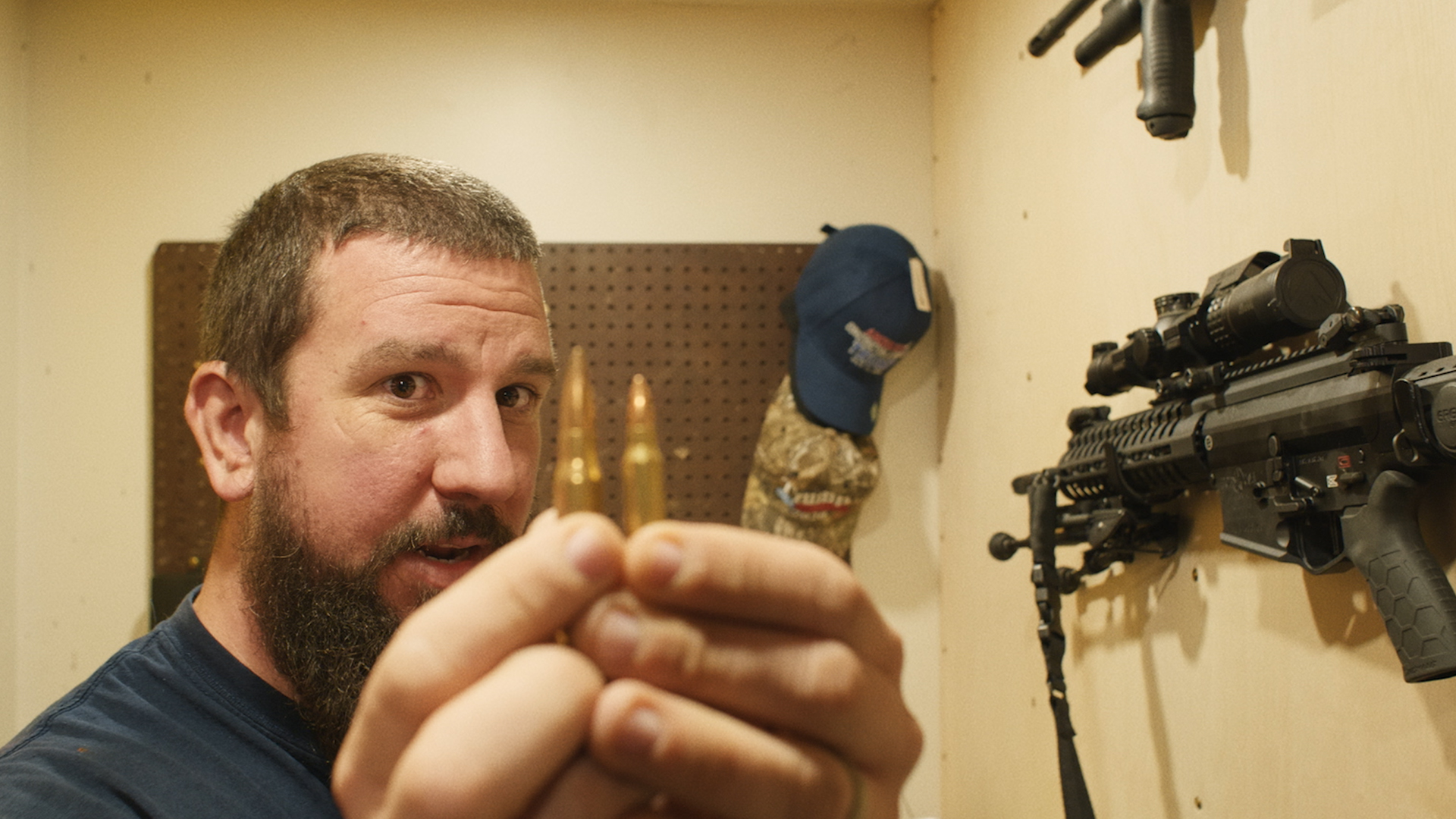Apart from the group of excellent and timely documentaries HIFF is presenting this fall, Michael Premo’s HOMEGROWN may be the only one that takes a hands-off approach to his subject, instead allowing his camera to document without comment.
Telling the stories of three men caught up in the activism in support of Donald Trump’s baseless claim that the 2020 election was stolen from him, Premo chooses an unfiltered look into these men’s lives. Compared to the other advocacy documentaries in our lineup of BLACK BOX DIARIES, MARIMARI, NO OTHER LAND, VOICE, YINTAH, ZURAWSKI v. TEXAS and, one in particular that hits closer to home, STANDING ABOVE THE CLOUDS, HOMEGROWN leans more observational in approach.
Here’s Premo talking about his film, which screens at 8 p.m. Thursday, Oct. 10, and 11 a.m. Saturday, Oct. 12:
How did the idea originate for the film HOMEGROWN?
This project has been bubbling in my mind for awhile. I came of age in the culture wars of the 1990s. And after the election of President Obama, violent rhetoric came flooding back into mainstream political discourse in a way we had not seen since the 1970s,
Having covered many social movements as a journalist, photographer and filmmaker since 2000, I could feel the momentum of the Conservative movement building steam towards something big and consequential. Starting in 2018, I set out to explore how homegrown political violence is justified and normalized, particularly among a growing movement of everyday people losing faith in American democracy’s ability to protect their interests. We wanted to better understand who these people are, and what they believe.
How did you gain access to the daily life and intimacy of the three main protagonists in the film, and the larger movement?
Our work is rooted in an ethic of accountability and journalistic integrity. We are interested in honestly showing people as they are so we can understand them better. That is why we chose the observational approach of cinema verité instead of sit-down interviews. We met people at marches, meetings, rallies, and community spaces like churches, and bars. Over the course of several years, we filmed with a number of people around the country.
Some of the people we filmed were genuinely interested in engaging with people with differing viewpoints. Many simply wanted to be seen and heard. I met people looking for community, belonging, and purpose. Some of their grievances were similar to those of left-wing and progressive movements. People felt their governments serve corporations and the wealthy, and have forgotten working and middle-class people. They felt forgotten and left behind, and are looking for people to blame.
As a Black filmmaker, I also had a vision of the conservative movement as much more white than what I actually encountered. It was important to show the increasing participation of Black and Latino people who feel inspired and empowered by the conservative movement. I ultimately found that people who I was filming with did not make assumptions about my own political beliefs based on my appearance.
HOMEGROWN includes some risky shots, like violence during street protests, and the assault on the Capitol. How were you able to film those moments? How dangerous was your whole process?
I never thought I’d make a movie in the U.S. where I’d be shot at, witness political rivals fist-fighting in the streets, and film a protagonist through hours of hand-to-hand combat at the U.S. Capitol. Over the last two decades, I have documented many types of social movements, and political activism in North America, and Southern Africa, so I have some experience with protests and social unrest. In America in particular, there are a lot of guns, and many people are not well trained in firearms safety and etiquette, so we operated with a vigilant safety and security posture that prepared us for many of the situations we faced.
What do you want viewers to take away from the documentary?
We started filming in 2018, and didn’t stop rolling until the fall of 2021. This might be the only film that captured these unprecedented events from the passenger seat as they unfolded. What we achieved is a visceral contribution to the discussion on the future of democracy. The film is at once a unique record of a transformative moment in U.S. history and an urgent sign of those to come.
These days, so many of us are so siloed in our bubbles that we rarely interact with anyone with different perspectives. This contributes to a pattern of reducing people who have differing opinions to one-dimensional caricatures. But people are complex. Systems of power are complex. When we reduce people to stereotypes, the proposed answer to our challenges become oversimplified.
Too often we define ourselves by our differences instead of understanding our similarities, so it was vitally important to make an honest, no-judgment, study of the people heeding the call of “us vs. them” politics.
The film is being released in a complex political context. What is your prognosis of what comes next?
In the 21st century, democracies die, not with a bang, like a military coup, but with a whimper, as faith in the idea is eroded from within. A democracy only endures when written rules are reinforced by even stronger unwritten democratic norms and values.
The United States is in the midst of a significant, sustained increase in political violence. If the conditions we see now in America were happening in a foreign country, the State Department would issue a travel advisory.
Many people think that it’s ridiculous to imagine that there will be another civil war in America. It’s true that what happened in the 1860s won’t ever happen again. But in recent history, civil conflicts look a lot different. They are messy, and unclear, and full of armed groups settling scores through low-intensity conflict that contributes to tearing apart the social fabric. And that is what we are beginning to experience in the United States.
We are headed for another close election, and I don’t think we’ve learned our lessons from 2020 yet.



